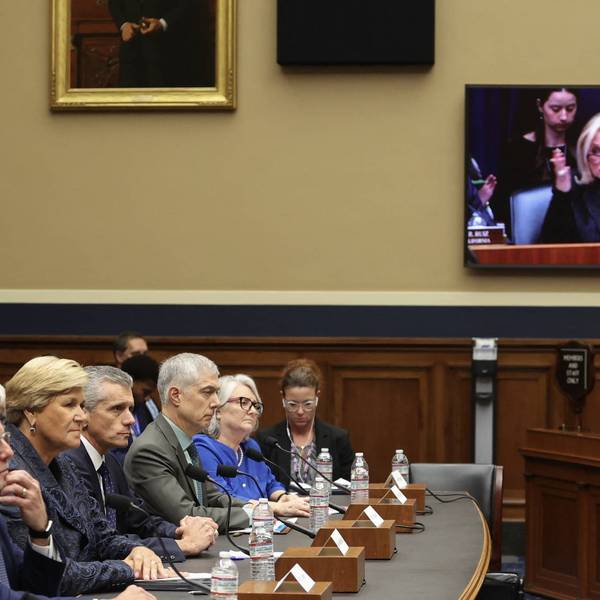On April 14, Representatives Scott (D., VA), Horsford (D., NV) and Dingell (D., MI) introduced the Worker Health Coverage Protection Act (pdf). The Bill would fully pay the health insurance premiums for all laid off and furloughed workers who would otherwise qualify for COBRA coverage.
The COBRA law allows certain eligible laid-off workers to remain on their employer's health insurance plan for up to 18 months provided that they continue to pay a monthly premium of 102% of the cost of their employer's plan. Since the full cost of employment based health insurance is prohibitively expensive for most laid off workers (the Kaiser Family Fund calculated that the average 2019 premium for an employer-sponsored family plan was $20,576 per year), very few workers take advantage of this program. By fully subsidizing these premiums, this Bill could be an important lifeline for many laid off workers.
This crisis forcefully illustrates the failures and shortcomings of an employment-based health insurance system. Trying to shore up this system through fully subsidizing COBRA payments will only serve to reproduce those failures in the face of an unprecedented national health emergency.
The loss of employment-based coverage is a matter of great urgency for the over 20 million workers who have already been laid off and furloughed over the past month and to the additional 20 million who may lose their jobs in the coming month. It is indisputable that millions of workers would benefit from the passage of this Bill. That is why the AFL-CIO Executive Council commended Representatives Scott, Horsford and Dingell for introducing this legislation. However, given the massive scope of the current public health and economic crisis, this legislation is insufficient to meet the needs of American workers and their families.
Too Little for Workers. Too Much for Big Insurance and Big Pharma
This crisis forcefully illustrates the failures and shortcomings of an employment-based health insurance system. Trying to shore up this system through fully subsidizing COBRA payments will only serve to reproduce those failures in the face of an unprecedented national health emergency. Here are some of the major problems with the proposed legislation:
- It leaves too many workers uncovered. COBRA benefits are only available for those who worked for employers with over 20 employees and it excludes workers categorized as independent contractors and the self-employed. Workers must have been covered by an employer plan for at least six of the twelve months preceding their layoff
- It does not go far enough in providing economic relief. Unemployed workers would still have to pay all of the co-pays, deductibles and other out of pocket expenses associated with their private insurance plans. . The Kaiser Family Foundation reported that, in 2019, 34% of insured Americans had difficulty paying for routine costs, these costs prevented them from seeking the care they needed, and even individuals with employer-sponsored insurance, especially those with high deductible plans, have difficulty affording their health care or health insurance, and report problems paying medical bills. Providing COBRA coverage will not fix the problem of access and affordability for millions of Americans
- This Bill subsidizes Big Insurance and Big Pharma at a time when all available resources need to be devoted to frontline patient care. Paying 102% of private insurance premiums while failing to rein in profiteering from the pharmaceutical and medical device industries is not a good use of public funds, especially when millions of workers are struggling for survival
Given the corporate bailouts inherent in this legislation, it should come as no surprise that the proposals in this Bill closely mirror the language of a March 19 letter to Congress from AHIP--the lobbying group for the health insurance industry--and the Blue Cross Blue Shield Association: "Congress should create new funding to support coverage for those who lose their jobs due to the crisis, by providing a 90% subsidy for COBRA or other insurance coverage."
Big Problems Demand Big Solutions
The Labor Campaign for Single Payer is calling on Congress to expand Medicare coverage to everyone in America for the duration of the crisis. This expansion must include all Americans regardless of employment or immigration status. Any barrier to care will discourage people from getting needed medical treatment and jeopardize everyone's health.
"The Labor Campaign for Single Payer is calling on Congress to expand Medicare coverage to everyone in America for the duration of the crisis. This expansion must include all Americans regardless of employment or immigration status."
All Medicare deductibles and Part B premiums should be waived for the duration and Medicare should be empowered to negotiate all drug and medical equipment prices, to put a lid on profiteering. Additional funds should also be allocated to the Veterans Administration and the Indian Health Service to allow these hard-pressed single-payer systems to adequately serve their constituencies.
Such a proposal should be a centerpiece of the next round of emergency relief legislation. It would immediately free health care providers from the onerous administrative responsibilities of dealing with private insurance, while assuring them that they would be paid for delivering needed care.
Sick people would be more likely to seek early treatment if they knew there were no financial barriers. By cutting out the insurance company middleman and regulating price gouging, we could save 10 to 15 percent of total health care costs--approximately $400 billion over the next year-- while making sure the benefits flow to those who need them.
Economic Shot In the Arm
Emergency expansion of Medicare, to Medicare for All, would also be a huge economic stimulus. The elimination of co-insurance, deductibles, co-pays, and out-of-pockets would provide major monetary assistance for all working families, both employed and unemployed.
Employers would be temporarily relieved of the obligation to pay for private insurance, creating an incentive to keep workers on the payroll rather than lay them off. Hard-pressed state and local governments would also be freed from the burden of employee and retiree health care costs.
Since the federal government already pays 60 percent of all health care costs through Medicare, Medicaid, CHIP, Tri-Care, federal employee health benefits, and other programs, the costs of such an emergency expansion are manageable.
Even assuming a huge increase in demand over 2019 levels, the additional federal obligation would be about $150 billion for each month the crisis continues. If the crisis lasted for a full year, new federal expenditures would still be less than the $2+ trillion committed under the March 27 CARES Act with all its corporate bailouts, or the $2.3 trillion that the Federal Reserve announced it would pump into the economy to stabilize the bond market and buy corporate debt.
As the crisis abates, the nation should debate what kind of health care system we should transition into to permanently meet the needs of everyone in America. During the transition, we could phase in longer-term financing mechanisms for Medicare for All, such as an employer-paid payroll tax and additional income and wealth taxes on the top 5 percent.
The Health Care Emergency Guarantee Act
Senator Bernie Sanders (I., VT) and Representative Pramila Jayapal (D., WA) have introduced the Health Care Emergency Guarantee Act. It empowers Medicare to pay all of the costs of treatment for the uninsured, and cover all out-of-pocket costs for those with public or private insurance, for as long as this pandemic continues.
The legislation also bans surprise billing, empowers Medicare to purchase pharmaceuticals at the same prices as the VA, and prevents private insurance companies from increasing copayments and deductibles, or decreasing coverage, for the duration of the health care crisis.
"Congress has a clear choice. It can spend money on a plan that efficiently delivers care to everyone as equitably as possible or it can spend even more money to subsidize the delivery of worse care to fewer people in order to shore up the profits of the private insurance and pharmaceutical industries."
While this Bill falls short of the Labor Campaign's call for the complete displacement of private insurance coverage for the duration of the crisis, it would provide immediate relief to all Americans--employed and unemployed, insured and uninsured--and lift some of the administrative burdens for our beleaguered healthcare providers while ensuring that they will be adequately reimbursed for the services they are delivering.
Congress has a clear choice. It can spend money on a plan that efficiently delivers care to everyone as equitably as possible or it can spend even more money to subsidize the delivery of worse care to fewer people in order to shore up the profits of the private insurance and pharmaceutical industries.
A Worker-Based Recovery
The real heroes of this moment are the workers who are tending the sick, keeping the wheels turning, and making sure we have the necessities to keep everyone safe in their homes. The U.S. labor movement has distinguished itself in fighting for the proper protection and adequate compensation for all of these workers regardless of their union membership. This principle of solidarity represents the highest values of our movement.
Workers are paying with their lives because our dysfunctional health care system is unable to deliver the care we need at a price we can afford. If there is anything that we have learned from this crisis, it is that the health of each of us is dependent on the health of all of us. We all deserve the security of knowing that our healthcare will be guaranteed for the duration of this crisis with no financial barriers to care.




